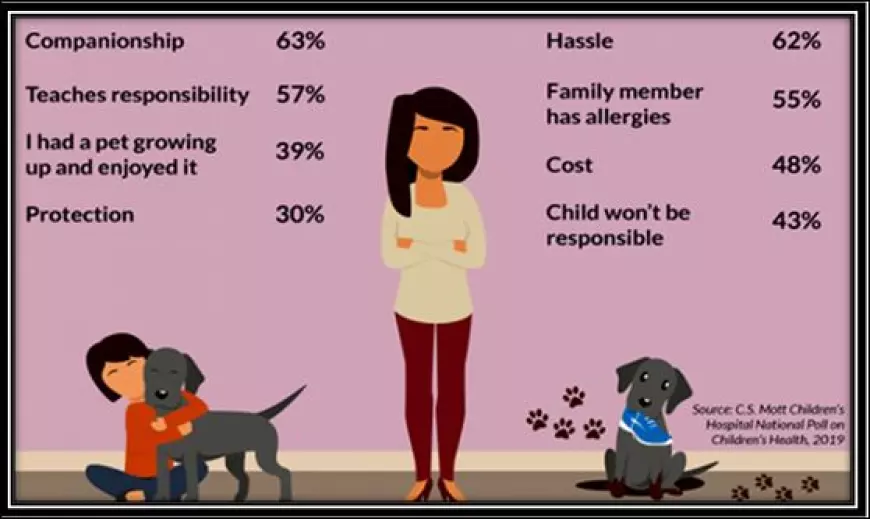What Factors Should You Consider for a Dog If You Have Small Children?
Get expert advice on selecting the right dog for small children. Explore essential factors like breed characteristics, training, and safety measures for a harmonious home.

Understanding the temperament of your dog
Understanding the temperament of your dog is crucial when considering getting a pet for your family, especially if you have small children. Every dog has a unique personality and temperament that can greatly influence their behavior around kids. Some breeds are naturally more patient, tolerant, and gentle, making them ideal companions for families with young children. Understanding your dog's temperament involves observing their reactions to various stimuli, socializing them with other dogs and people, and recognizing any signs of fear or aggression. This understanding can help in selecting a dog breed that is well-suited for your family dynamic and lifestyle.
Furthermore, it's important not only to consider the breed but also to focus on individual traits when assessing a dog's suitability for households with small children. Factors such as energy level, size, trainability, history of aggression or anxiety, and overall sociability should be taken into account. Dog owners should invest time in training their pets to ensure they are well-behaved around children while also being mindful that no two dogs are alike. By understanding the individual temperament of your dog and its compatibility with your family environment, you can create a safe and harmonious relationship between your pet and little ones.
Size and breed considerations
When choosing a dog for a home with small children, size and breed considerations are crucial. Large breeds like Golden Retrievers or Labradors can be gentle and patient, making them great companions for kids. However, their size may pose a risk of accidentally knocking over little ones during playtime. On the other hand, smaller breeds such as Beagles or Shih Tzus can be more manageable in terms of size but may have less tolerance for rough handling from young children.
It's important to consider the temperament and energy level of different breeds as well. Some larger breeds may have a calm disposition, while some smaller breeds can be highly energetic. Matching the breed's traits with your family's lifestyle and activity level is imperative when selecting the right dog for your children. Additionally, considering hypoallergenic breeds if anyone in the household has allergies can also affect your decision-making process. By carefully evaluating both size and breed characteristics, you can find a furry companion that will not only bring joy to your children but also create a safe and harmonious environment for everyone in the family.
Energy level and exercise needs
When considering a dog for your family with small children, it's important to take into account the energy level and exercise needs of the potential canine companion. Dogs vary widely in their energy levels, from high-energy breeds like border collies and terriers to more mellow breeds like bulldogs and pugs. For families with young, active children, a higher energy dog may be a better fit as they can match the enthusiasm and playfulness of the kids. However, it's crucial to ensure that you have the time and commitment to meet the exercise needs of a high-energy dog through regular walks, playtime, and mental stimulation.
On the other hand, if your family has less active or younger children, a lower-energy dog may be more suitable. These dogs may still need daily exercise but might not require as much physical activity or mental stimulation as their high-energy counterparts. It's essential to match your family's lifestyle with a dog's exercise needs to ensure that both the pet and children can thrive together harmoniously. Additionally, considering factors such as size, temperament and training requirements can also contribute to finding a compatible furry friend for your little ones.
Socialization and training requirements
Socialization and training requirements are crucial considerations when choosing a dog for a household with small children. Selecting a breed that is known for its friendliness, patience, and adaptability to children can contribute to a harmonious family dynamic. In addition, it is essential to invest time and effort into properly socializing the dog from an early age, exposing it to various environments, people, and other animals to ensure that it becomes well-adjusted and confident around children.
Training requirements should also be factored in when choosing a dog for a family with small children. A well-trained dog can understand boundaries, follow commands, and behave appropriately in different situations. Consistency in training methods is key, as dogs thrive on routine and clear expectations. Teaching the dog basic commands such as sit, stay, and come can help establish control and facilitate positive interactions between the dog and the children.

Allergies and shedding concerns
Allergies and shedding concerns are two important factors to consider when choosing a dog for a household with small children. Allergies can be a significant issue for some children, and certain dog breeds may exacerbate these allergies due to their dander or fur. It's crucial to research hypoallergenic breeds that produce fewer allergens and shed less, such as poodles, bichon frises, or Portuguese water dogs. This can help minimize the risk of triggering allergic reactions in sensitive children and create a healthier environment for everyone in the family.
Additionally, shedding concerns should not be overlooked when selecting a dog for a home with small children. Constant vacuuming and cleaning up stray hairs can become burdensome for busy parents, so opting for low-shedding breeds or those with minimal grooming needs can make life easier. Breeds like labradoodles, shih tzus, or Maltese are known for their low-shedding coats, making them practical choices for families with young kids who may already have their hands full juggling various responsibilities. Considering these factors will not only benefit the well-being of the children but also contribute to creating a harmonious living environment where pet care is more manageable.
Supervision and safety measures
When considering getting a dog for your family, supervision and safety measures are crucial factors to address when you have small children. It's important to recognize that no matter how well-trained a dog may be, they are still animals with natural instincts. This means constant supervision is necessary whenever the dog and children are interacting. Additionally, implementing safety measures such as baby gates or keeping the dog on a leash during playtime can help minimize any potential risks.
Furthermore, it's essential to educate both your children and the dog about appropriate behavior around each other. Teach kids how to respect the dog's space and boundaries, while also training the dog to be gentle and patient around children. By promoting positive interactions through proper supervision and safety measures, you can create a harmonious environment where both your kids and your furry friend can thrive together.
Conclusion: Finding the perfect furry companion
In conclusion, finding the perfect furry companion for your small children is a decision that requires careful consideration. While personality and temperament are crucial factors to consider when choosing a dog, it's also important to take into account the size of the breed and its energy levels. For families with small children, opting for a gentle and patient breed such as Golden Retrievers or Labrador Retrievers can be an ideal choice, as these breeds are known for their friendly and tolerant nature.
Additionally, it's essential to prioritize early socialization and obedience training to ensure that both the dog and children coexist harmoniously. Remember that every dog is unique, so taking the time to assess individual personalities and needs is key to finding the perfect four-legged companion for your family. By carefully evaluating all these factors, you can make an informed decision that will benefit both your children and your new furry friend for years to come.







